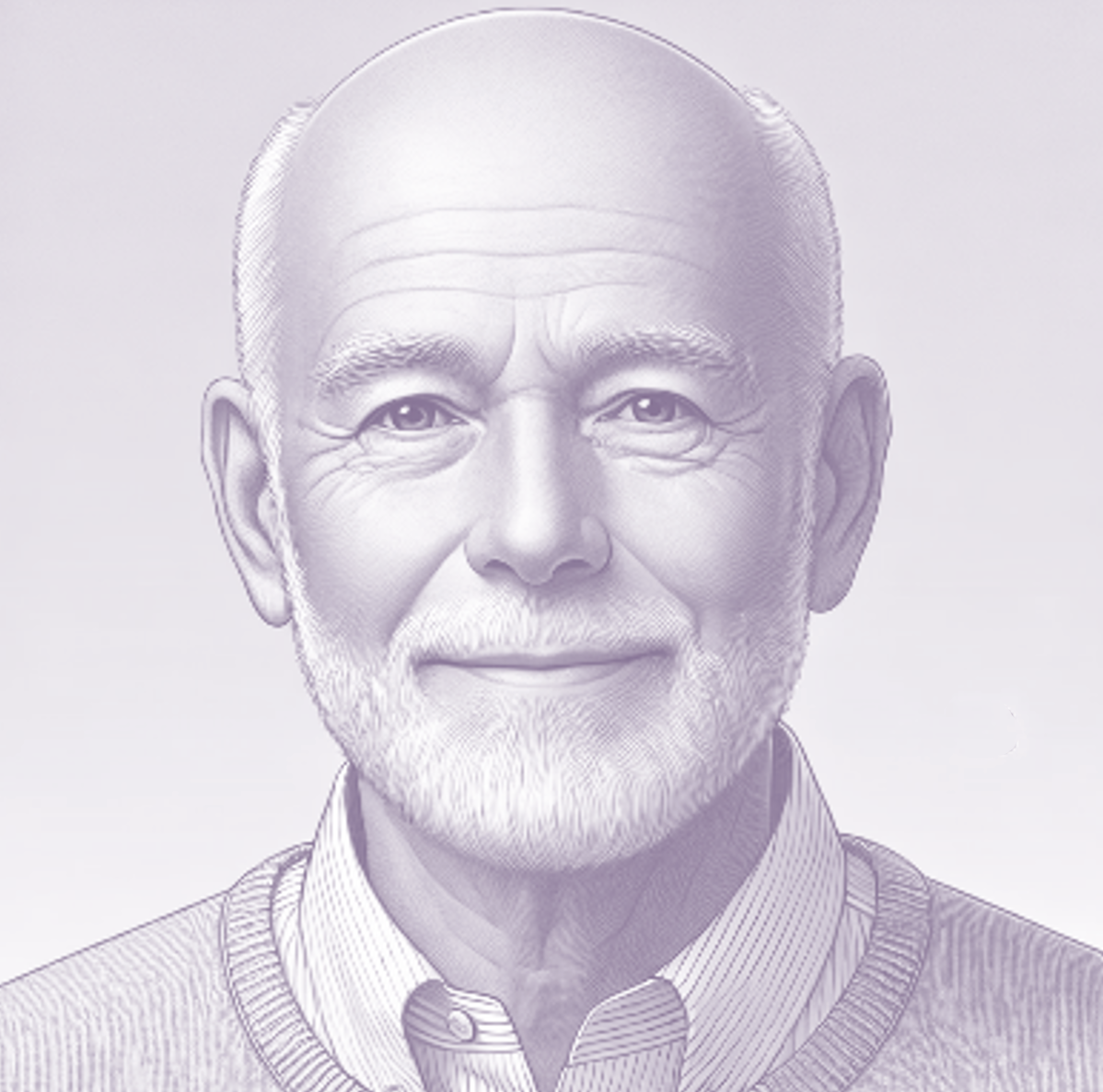Take care of your partner in the event of your death | Questions and answers
If you’re like Hans: drawing a pension from Philips Pensioenfonds, either a retirement pension or a survivor’s pension
Members with a disability pension should read the text under ‘Small changes, more protection'.
- A pension for life: Hans will receive his pension like he always has, for the rest of his life. The value of his current pension will be converted into a personal pension capital under the new pension plan. If Philips Pensioenfonds’s finances are healthy, his personal pension capital will be topped up from the Pension Fund’s financial buffer. In that case, his pension will immediately be about 5 to 8% higher as of January 1, 2027.
- Small changes, more protection: under the new system, the pensions could be influenced more by the economic situation. This means that they’ll go up if the returns are good, but they could go down if the returns are poor. The most important protection to avoid lowering the pensions is spreading the investment returns over three years. Positive and negative returns on the investments won’t be reflected right away in Hans’s pension. Instead, they’ll be spread over several years so that his pension is more stable. Another protection is the solidarity reserve, to prevent or minimise the need to lower Hans’s pension if the investment yields and other returns are negative. When the investments yield positive returns, a small portion will be added to the solidarity reserve.
- No more choices, but more security for his partner: Hans doesn’t have to make any decisions anymore: all the arrangements have been made for him. For members like Hans, with a retirement pension and a partner, the partner’s ratio for the survivor’s pension to the retirement pension won’t change when we switch from the existing pension plan to the new one.

Take care of your partner in the event of your death
Have you chosen a survivor’s pension upon retirement? Then your partner and children will also receive a pension from the Philips Pensioenfonds under the new pension scheme if you pass away. You will retain the same pension for your partner as you have now. The survivor's pension is usually around 70% of your retirement pension, but it can also be higher or lower.

Questions & answers
for members who are drawing a pension
No, you will receive a pension as long as you live. You don't have to worry about running out of money for your pension.
On the retirement date, the annual pension is determined partly on the basis of life expectancy. This concerns the annual pension that a participant receives from his or her own pension capital. You might then expect the pension capital to have run out as soon as a participant has reached that life expectancy. If a participant becomes older than expected, this participant would no longer receive a pension from that moment on. That is of course not the intention.
The Future Pensions Act stipulates that this so-called longevity risk must be covered. This way there is also pension income if one grows older than expected. The remaining pension capitalof participants who die earlier than expected are distributed among the participants who live longer than expected. The supplementation of the pension capital as you become older therefore takes place annually and gradually and not only from the moment you have become older than expected.
This does not mean, however, that a participant does not run any longevity risk at all. If fewer participants die than expected, less pension capital will be available than necessary to supplement the pension capital of participants who live longer. This effect is relatively limited in our Fund, because the number of participants who die each year is fairly stable due to our size. Finally, if not fewer, but more participants die than expected, more pension capital will be available to supplement the pension capital of participants who live longer.
The assumption is that all pensions that have already been accrued will fall under the new rules. This includes pensions of people who are already retired. In pension jargon, this is called ‘entitlement conversion’. However, this basic principle will not necessarily apply if it would create a disproportionate disadvantage for certain groups of members. It is uncertain at this time whether Philips Pensioenfonds will convert the existing pension entitlements: this will be decided further down the road. That decision will essentially apply to the pensions that have been accrued under the existing system by all members. Members will not have a choice between switching to the new pension rules and staying with the existing system.
In the event of entitlement conversion, the expectation is that Philips Pensioenfonds will implement measures to minimise any decrease in benefits from year to year. Nevertheless, it will be impossible to entirely rule out drops, and even small income fluctuations can cause great difficulties for certain groups of members.
It is also possible that participants can still exert influence through a referendum regarding the use of accrued pensions. This is currently being discussed in the House of Representatives (Tweede Kamer).
That is correct. Under the new system, you will have a personal pension capital that is invested. The value of your pension capital will fluctuate over time. You will be able to see how much pension capital you have at a particular moment. You will also be able to see what developments have affected it, either increasing its value (contributions and investment gains, for example) or decreasing its value (such as benefits that you have drawn or investment losses).
How much pension you can draw from your pension capital after you retire will not be predetermined: instead, it will depend on factors such as future investment yields and the interest rates when you retire. Those yields will depend on your age: while you are young, more of your pension capital will be invested in equities (shares) and its value will fluctuate more strongly than when you are older and it is invested more conservatively.
When the new system is introduced, your pension will also be affected more strongly by economic fluctuations: it will be more likely to go up in times of prosperity, but also more likely to go down when the economy is struggling. We will try to prevent a decrease in pension benefits as much as possible.
With regard to the increase in your pension: in the current pension system, this is always done through indexation. In new pension system your pension will not be indexed in the way that it is now. Whether your pension goes up depends on the amount of your personal pension assets. And also besides the investment return, the projection return will be determining the yearly adjustment of the benefit. More information about the projection return can be found on our Question and Answers page under the question: 'Is the calculation interest rate in the new pension system no longer important at all?'.
In January 2027, you will still receive the same gross pension amount as in December 2026. This is because the transition of pensions (“invaren”) based on the funding ratio as of 31 December 2026 will not yet be completed. In February 2027, this process will be finalized. In February, you will receive your new pension amount—which includes the increase resulting from the distribution of the buffer—as well as a retroactive payment of the increase for January. From March 2027 onward, you will receive the new pension amount each month.
We will illustrate this with an example calculation (all amounts are gross). Suppose:
- your monthly pension is currently €1,000
- during the transition, you receive a 10% increase
- your new monthly pension amount will then be €1,100
You will then receive:
- in January 2027: €1,000
- in February 2027: €1,200 (€1,100 for February plus a retroactive payment of €100 for January)
- from March 2027 onward: €1,100 per month
In the new pension plan, pension beneficiaries of Philips Pensioenfonds are protected against shortfalls in investment returns by the solidarity reserve. At the time of switching to the new pension plan, that reserve will be filled using the Pension Fund’s buffer. Later, it will be topped up by withholding small amounts from the positive investment yields of the pension beneficiaries and other members aged 55 and up. The solidarity reserve will be used to top up your pension if it would otherwise need to be lowered. However, this is possible only if the solidarity reserve contains enough assets. However, any amount from the pension fund’s assets that is put into the reserve cannot be used for the personal pension savings of members.
Related information
The information below might also be interesting for you

New rules for pensions
On this central page you will find information about what you can expect in the years to come.
Nieuwe pensioenregels
Want to know more about the survivor’s pension?
Watch our explanatory video about the survivor’s pension.
Go to video